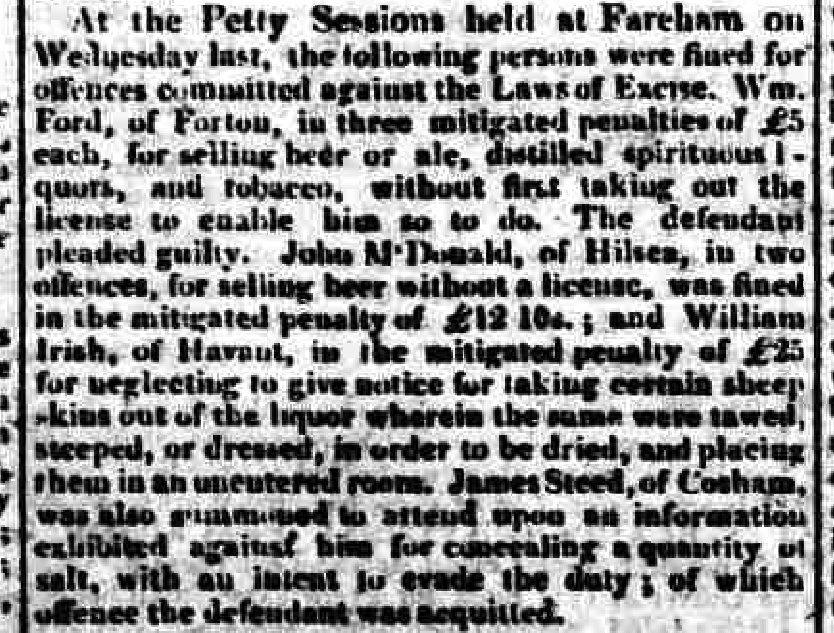Quote
At the Petty Sessions held at Fareham on Wednesday last, the following persons were fined for offences committed against the Laws of Excise.
Wm. Ford, of Forton, in three mitigated penalties of £5 each, for selling beer or ale, distilled spirituous liquors, and tobacco, without first taking out the license to enable him so to do. The defendant pleaded guilty.
John McDonald, of Hilsea, in two offences, for selling beer without a license, was fined in the mitigated penalty of £12 10s.;
and William Irish, of Havant, in the mitigated penalty of £25 for neglecting to give notice for taking certain sheep skins out of the liquor wherein the same were tawed, steeped, or dressed, in order to be dried, and placing them in an uneutered room.
James Steed, of Cosham, was also summoned to attend upon an information exhibited against him for concealing a quantity of salt, with an intent to evade the duty; of which offence the defendant was acquitted.
— Hampshire Chronicle, Monday 16 November 1818 source
The John McDonald case might not be tied to a pub at all - he could have been selling beer from the back door of his farm house. Or he might be living in Hilsea but committed the offence in Portsea.
The William Irish case, as far as I can tease it out: tawing, also known as mineral tanning, is a method of tanning which created a more delicate, pale-coloured leather used for gloves, books, etc. So he was tanning sheepskins, and placed then in an “uneutered” (unapproved?) room. I’d say he broke a hygiene regulation, rather than a taxation regulation, except the article pretty clearly says “offences committed against the Laws of Excise”.
Salt was big business - in 1820, Henry Slight writes “The Duties arising to Government from [Great Salterns] exceed in amount all other Excise Duties paid in the Island.”
